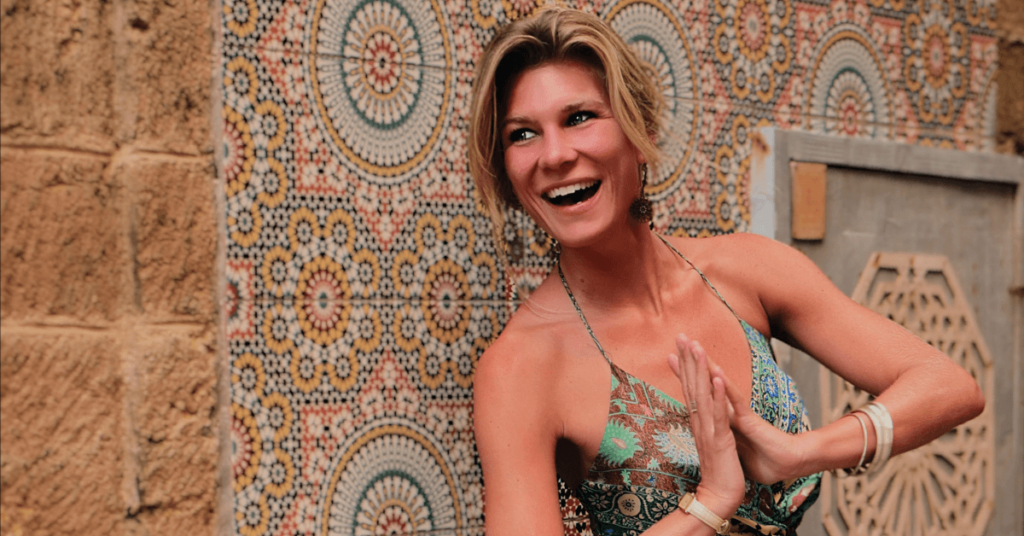Let’s apply yogic philosophy to your modern life and learn how to spend your energy wisely.
Brahmacharya is probably the most confusing Yamas of all. When studying the Yamas and niyamas, this one often gets neglected. It’s controversial, which means disagreement’. Brahmacharya is known for being linked to celibacy but it has also been used to simply mean a conservation of energy so that it is used in a correct way. In other words: ‘spending your energy wisely’.
Did I lose you already? Let me help you investigate and discover ways in which it could apply to you. Give you a new perspective and understanding of Brahmacharya in our modern, Western, day-to-day life so you can spend your energy wisely.
Let’s start with an example of ‘wasting’ energy:
‘It’s Tuesday morning and you accidentally slept in. You wanted to practise yoga and get some work done, but it’s already 12pm. You’re still in bed, you scroll through Instagram and you feel yourself getting annoyed. You get annoyed because the house is a mess, your partner hasn’t taken the dog out, you haven’t had a coffee and suddenly everything just seems shit and there’s chaos’.
However, the chaos isn’t really happening externally. The chaos is what you notice in your mind and body.
To make yourself feel better, you make a massive breakfast. Let’s say brunch. You decide it’s already too late to make this day productive and instead go watch a film, do some online shopping and let the hours pass by. You realise the sun is about to set and get even more annoyed. You call yourself useless, worthless, and ‘a loser’ because you haven’t done anything (yet).’
Sometimes, we need a day like this. But sometimes, we really let ourselves go. Brachmacharya speaks about ‘the right use of energy’: self-regulation or self-control, but in this example, you also saw how we neglected other yamas such as Asteya (non-stealing) and Ahimsa (loving kindness). Remember, everything is connected. So are the Yamas.
Then, how can I spend my energy wisely?
Brahmacharya originally refers to ‘celibacy’. Celibacy means that you’re not sexually active or actively looking for it. Basically, you voluntarily give up your sexual energy and only use it to reproduce in the right stage of your life. I understand that doesn’t sound appealing. But, I also believe we can find a way in which you can practise this yama yourself.
Rather than focussing on sexual activity, we focus on spending energy wisely. Do you do the things you do because it brings you internal happiness? Or do you do it because it’s what’s expected? Maybe you don’t know any better, you’re too tired to find a different way, or maybe there’s fear of judgement or not being good enough.
To spend our energy wisely, we have to find balance or moderation. To find this equilibrium, I like to ask the questions words starting with WH-. In this case: What? When? And why?
A few useful questions:
Let’s go back to the example and start at the moment that you realised it was ‘too late’ for a productive day. What if you’d asked yourself:
‘What do I actually need to do?’ – Maybe there’s a deadline or someone waiting for you, but maybe it’s okay to rest.
‘When do I have time to do it?’ – If it’s work, you might not have a choice, but maybe it doesn’t actually need to happen straight away.
‘Why is it so much effort?’ – Are you truly tired, or are you becoming tired of the idea of doing it? Maybe it’s ignorance and you simply need to get out of your own bubble.
What is the actual reason behind your negative use of energy??
You’re most likely not actually angry with your partner, or the fact that the house is a little messy. When I find myself in a position like this, I most often feel stuck or tired of doing things the same way. No one has ever achieved more without changing and improving the process.
It’s all about balance, baby!
In yoga we search for healthy challenges in moderation. This means that it’s okay to find your limits, but don’t go beyond them. When you find a spot where you are too comfortable, you’re not spending your energy wisely. When you find a spot that’s too challenging, it takes longer to improve and gets too frustrating; you’ll eventually give up or go past your boundaries, provoking all sorts of issues from mental health to physical health or unhealthy relationships.
If you feel unhappy, unsatisfied, frustrated, or are easily distracted, it’s a sign of imbalance within. I’d highly recommend you read our blog about ‘happiness’ and finding your flow.
Continuing Education Membership
In the meantime, check out our Continuing Education Membership for multilingual yoga teachers. This membership offers professional and personal development for yoga teachers that want to start teaching worldwide; online or abroad. Develop your communication and teaching skills while obtaining continuing education hours with our live and recorded classes and teacher training sessions!


